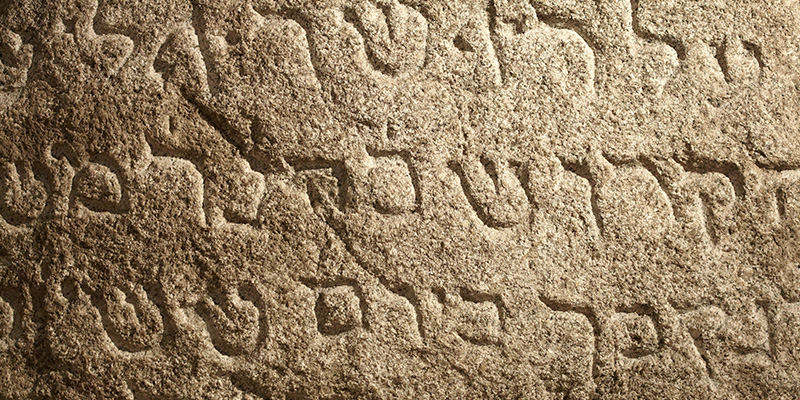If you’ve found yourself drawn to the rich tapestry of the Old Testament or felt a desire to explore the roots of ancient texts, you will never regret your choice to learn biblical Hebrew. The journey into deciphering the original language of the Bible opens doors to a deeper understanding of its profound meanings and cultural nuances. So, where can you embark on this quest to study this ancient language that will enlighten your mind and strengthen your faith?
One prominent institution that stands out in the area of biblical language studies is the Israel Institute of Biblical Studies (IIBS). Established with a mission to bring the ancient language of the Bible to life, this institute offers a range of biblical Hebrew courses designed to cater to all skill levels – from biblical Hebrew for beginners to advanced scholars.

Exploring the Israel Institute of Biblical Studies
IIBS provides a comprehensive and accessible platform for individuals worldwide to learn biblical Hebrew online. Their courses are crafted with a blend of advanced teaching methods and modern technology, creating an immersive and interactive learning experience.
The institute’s biblical Hebrew lessons cover a spectrum of topics, making them suitable for both beginners and those looking to deepen their understanding. From mastering the basics of the alphabet to delving into the intricacies of biblical poetry, students can tailor their learning journey according to their pace and interests.
One of the unique features of the institute is the opportunity to learn ancient Hebrew directly from expert instructors based in Israel. This not only ensures a high level of authenticity but also allows students to absorb the language in its cultural context, enhancing their overall learning experience.

What to look for in a biblical Hebrew learning institution
While IIBS is undoubtedly a stellar choice, it’s essential to know what to look for in any biblical Hebrew learning institution to ensure it aligns with your preferences and goals. Here are some key features to consider:
1. Comprehensive curriculum:
A well-rounded curriculum is vital for a holistic understanding of biblical Hebrew. When choosing your course, look for those that cover grammar, vocabulary, and reading skills, progressing from beginner to advanced levels. A good institution should also incorporate lessons in cultural and historical contexts to provide a deeper appreciation of the language.
2. Interactive and engaging learning:
Learning a language is most effective when it’s engaging and interactive. Look for institutions that offer a blend of video lectures, live sessions with instructors, interactive exercises, and a vast library of resources. This ensures that you not only grasp the theoretical aspects but also develop language skills.
3. Flexibility:
Life can be hectic, and finding time for learning might be challenging. Look for institutions that offer flexible schedules and the option to learn at your own pace. This flexibility allows you to balance your studies with other commitments.
4. Expert instructors:
Learning from experienced and knowledgeable instructors is crucial. Seek institutions that employ experts in biblical Hebrew with a strong academic background and a passion for teaching. This ensures that you receive quality guidance throughout your learning journey.
5. Cultural integration:
Biblical Hebrew is not just a language; it’s a gateway to understanding the culture and history of ancient times. Look for biblical Hebrew courses that incorporate cultural elements, providing a more holistic approach to your language studies.
6. Supportive community:
Learning is often more enjoyable and effective when done in a community. Choose an institution that fosters a supportive learning environment, encouraging interaction among students and instructors. This will enhance your learning experience and provide valuable networking opportunities.

Final Thoughts
Embarking on a journey to learn biblical Hebrew is a rewarding endeavor that opens the door to a deeper understanding of ancient texts. The Israel Institute of Biblical Studies stands as a beacon in this field, offering a blend of tradition and technology to make the learning experience accessible and enriching.
When exploring other institutions, keep in mind the key features we’ve discussed to ensure you choose the right fit for your learning goals. Whether you’re a beginner eager to unravel the mysteries of the alphabet or an advanced student seeking a deeper connection to the scriptures, the right institution will pave the way for a fulfilling and enlightening experience in the world of biblical Hebrew.
Keen to find out more? We’d love to talk to you about your learning goals. Contact us today so we can help you discover the Hebrew course that’s just right for you.






Please don’t be offended by this email. I have nothing against Protestants!
The greatest Catholic hebraists always learned from rabbinical or enlightened Jewish hebraists. Ones like Saint Jerome, or Santes Pagnino. I have to learn Greek in my Masters course on Sacred Scripture, and can’t take Hebrew there. So I need a name from your Rabbi as to whom she might choose, the best name out there. I’d be very grateful!
Just as an interesting example, the word “eqeb” has an ambiguity in Hebrew that means it may be translated in some contexts “to the end” but in others “as a reward”. If I were to learn Hebrew from a Baptist, he might tell me that at Psalm
119:112 the word means “to the end”, so that the psalmist does not appear to be saying that his heart is inclined to keep the Lord’s decrees “as a just reward”, because Protestants don’t believe that good works are given a just reward by God that is properly “earned”, understood correctly.
Does this make sense? I want someone capable of teaching the nuances.
warmest regards,
Dominic Pedulla MD
1-405-834-7506
Pedullad@outlook.com